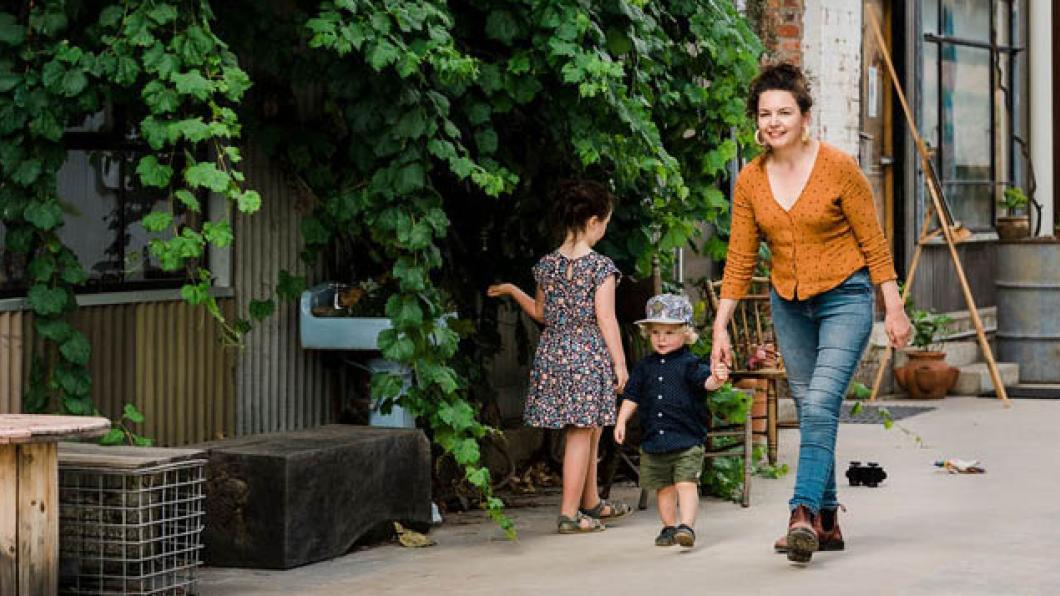
'Being a disabled parent is a rebellious act'
By Louise Kinross
Earlier this year we did an interview with Australian musician Eliza Hull (above photo, with her children) who had written the definitive book on parenting with a disability in Australia. Eliza has Charcot Marie Tooth, a neurological disorder that causes nerve damage and weakness and difficulty walking.
Next May, Eliza is releasing a new version of her book with stories from disabled parents in Canada, the United States, Britain and Australia: We've Got This: Essays by Disabled Parents.
Eliza asked if I'd write a blurb for the book, so I got to see an advance copy.
She begins the book by stating: "Being a disabled parent is a rebellious act.” What follows are 30 riveting stories, including her own, that explain why, all brimming with creativity and pluck.
A wide variety of disabilities are represented: there are parents who use wheelchairs, blind parents, deaf parents, autistic parents and parents with intellectual disabilities. There are parents with amputations, chronic fatigue and pain, dwarfism and quadriplegia. There are different kinds of families: adoptive parents, gay parents, biological parents and single mothers by choice. Some of the parents were born with their disabilities, others acquired them through trauma or illness. Some parents passed their disability onto a child.
"The parents who share their stories in We've Got This are ingenious, creative and adaptive," writes Eliza. "They constantly have to navigate physical, attitudinal and social barriers within society. They have faced discrimination and they have had their choice and ability to parent questioned. This is especially the case for parents with intellectual disability.
"What these parents show us, though, is that parenting isn't black and white. There shouldn't be a template we all follow to the letter. Parenting as disabled people demands we let go of the 'standard' or 'right' way to do something; instead, it's about being creative and flexible—and children are so beautifully open to being adaptive."
A common theme is pushback parents get from medical professionals, and Eliza's experience was no exception. "The sonographer asked if I could pass on my disability," she writes. "I said, 'Yes, there's a 50 per cent chance.' Her mouth dropped open like a fish before she said, 'Okay, let's see if we can see anything wrong.' I gulped. In that moment I thought, 'There's nothing wrong with me'— but I couldn't say it aloud."
This book is essential reading for anyone interested in parenting, families of children with disabilities, clinicians in children's and adult rehab, obstetricians and midwives, and teachers. It's available to pre-order. Enjoy!
Like this interview? Sign up for our monthly BLOOM e-letter. You'll get family stories and expert advice on parenting children with disabilities; interviews with activists, clinicians and researchers; and disability news.